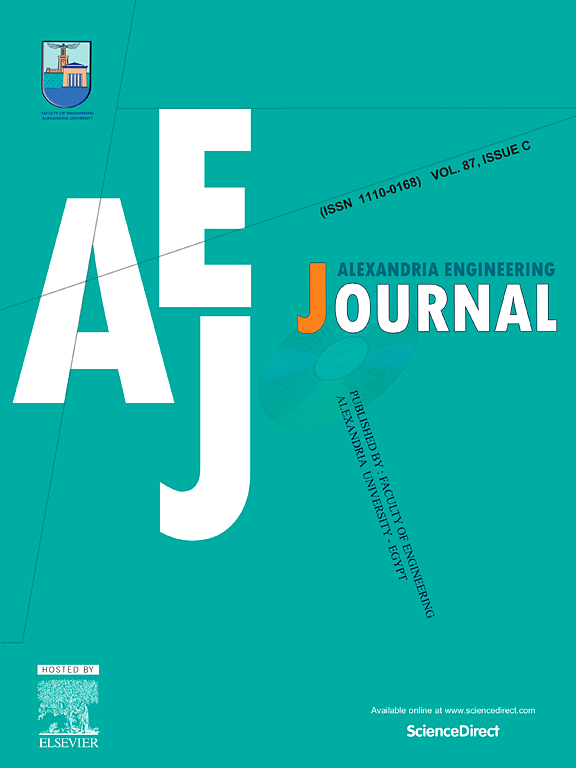Energy distribution strategy of power split marine hybrid energy storage propulsion system
IF 6.2
2区 工程技术
Q1 ENGINEERING, MULTIDISCIPLINARY
引用次数: 0
Abstract
The marine industry faces significant challenges, including the energy crisis and environmental pollution. In response, marine hybrid technology is regarded as an effective solution to address these issues. However, the overall performance of such systems is primarily governed by the energy management strategy. Therefore, this research proposes a marine hybrid energy management strategy (EMS) based on an adaptive migration butterfly optimization algorithm (AMBOA). Firstly, the performance index function is extended by adding a weighting term that suppresses the rate of change of the output power of the natural gas engine based on the Equivalent Consumption Minimization Strategy (ECMS), as well as maintaining the SOC penalty function to operate the powertrain in a quasi-static mode. Afterwards, Particle swarm algorithm is introduced to solve the problem that the butterfly optimisation algorithm is prone to fall into local optimum, and then the adaptive migration butterfly optimisation algorithm is formulated. Finally, the effectiveness of the proposed strategy is verified by the simulation platform and test bench. The results revealed that AMBOA-EMS effectively suppressed the frequent fluctuations of natural gas engine power compared to ECMS-EMS on the test stand, while saving 5.59 % of fuel while ensuring the power.
动力分流船用混合储能推进系统的能量分配策略
海洋产业面临着巨大的挑战,包括能源危机和环境污染。因此,海洋混合动力技术被认为是解决这些问题的有效方法。然而,这些系统的整体性能主要由能源管理策略控制。为此,本研究提出了一种基于自适应迁徙蝴蝶优化算法(AMBOA)的海洋混合能源管理策略(EMS)。首先,对性能指标函数进行扩展,在等效能耗最小化策略(Equivalent Consumption Minimization Strategy, ECMS)的基础上加入抑制天然气发动机输出功率变化率的加权项,同时维持SOC惩罚函数,使动力系统处于准静态模式;随后,引入粒子群算法解决了蝴蝶优化算法容易陷入局部最优的问题,并提出了自适应迁移蝴蝶优化算法。最后,通过仿真平台和试验台验证了所提策略的有效性。结果表明,与试验台上的ECMS-EMS相比,AMBOA-EMS有效抑制了天然气发动机功率的频繁波动,在保证动力的同时节省了5.59 %的燃油。
本文章由计算机程序翻译,如有差异,请以英文原文为准。
求助全文
约1分钟内获得全文
求助全文
来源期刊

alexandria engineering journal
Engineering-General Engineering
CiteScore
11.20
自引率
4.40%
发文量
1015
审稿时长
43 days
期刊介绍:
Alexandria Engineering Journal is an international journal devoted to publishing high quality papers in the field of engineering and applied science. Alexandria Engineering Journal is cited in the Engineering Information Services (EIS) and the Chemical Abstracts (CA). The papers published in Alexandria Engineering Journal are grouped into five sections, according to the following classification:
• Mechanical, Production, Marine and Textile Engineering
• Electrical Engineering, Computer Science and Nuclear Engineering
• Civil and Architecture Engineering
• Chemical Engineering and Applied Sciences
• Environmental Engineering
 求助内容:
求助内容: 应助结果提醒方式:
应助结果提醒方式:


